Discover the art of traditional Japanese tea brewing with Tokyo Online: Green Teatime.
Led by a local English-speaking expert, this unique virtual workshop immerses participants in the rich culture of Japan from the comfort of their own homes.
Learn the secrets of brewing delicious green tea, explore different varieties, and gain insights into the significance of tea in Japanese customs.
Whether you’re a tea enthusiast or simply curious about Japanese culture, this online teatime experience offers a delightful and educational journey into the world of Japanese tea.
Great News! You can reserve your spot for free with Viator. You can easliy cancel any time up to 1 day before without paying anything.
Quick Takeaways
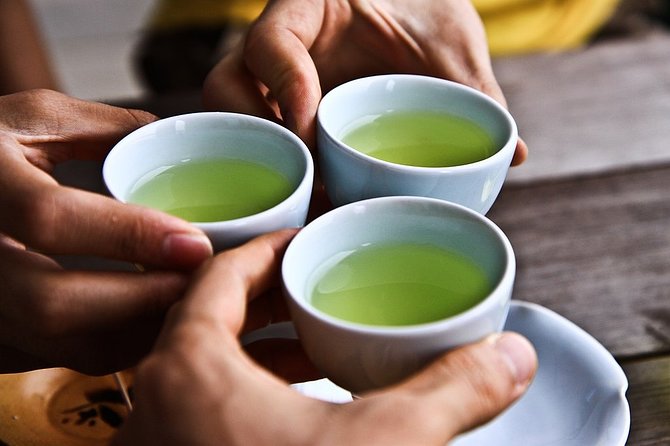
- Tokyo Online: Green Teatime in Japan offers a virtual tea tasting experience.
- Participants will learn about the main types of authentic sake from a sake expert.
- The workshop includes a 2-hour private sake tasting session in Koto City.
- The YANAKA home cooking experience allows participants to learn and cook local-style dishes.
Not for you? Here's a few more great tours and experiences nearby.
The History of Green Tea in Japan
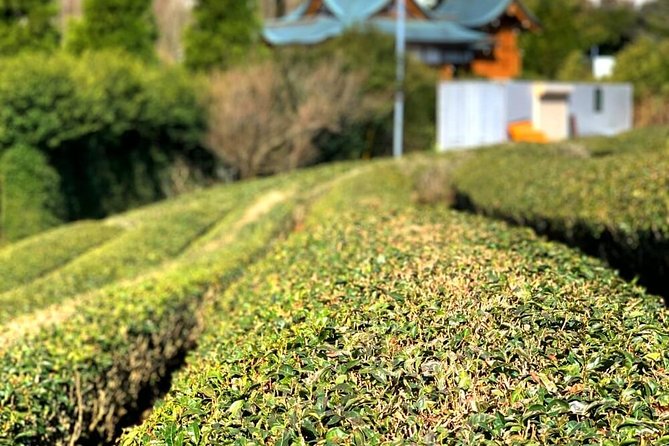
Exploring the rich history of green tea in Japan, one can discover its origins and cultural significance. Green tea production in Japan dates back to the 8th century, when Buddhist monks brought tea seeds from China and began cultivating them in temple gardens. Over time, the production and consumption of green tea became deeply ingrained in Japanese culture.
Green tea isn’t only enjoyed for its refreshing taste, but it also holds great cultural significance. It’s often served to guests as a sign of hospitality and respect. Tea ceremonies, known as ‘sado’ or ‘chado,’ are a traditional Japanese art form that involves the meticulous preparation and serving of matcha, a powdered green tea. These ceremonies symbolize harmony, tranquility, and mindfulness.
The cultural significance of green tea in Japan is deeply rooted in its history and rituals, making it an integral part of Japanese identity.
You can also read our reviews of more tours and experiences in Tokyo.
Health Benefits of Green Tea

Green tea offers numerous health benefits, and it’s a popular choice among those seeking to improve their well-being. This traditional Japanese beverage isn’t only loved for its refreshing taste but also for its potential health-promoting properties.
Green tea is rich in antioxidants called catechins, which have been shown to help reduce the risk of chronic diseases such as heart disease and certain types of cancer. It also contains caffeine and L-theanine, which can improve brain function and promote relaxation.
In Japan, green tea is deeply rooted in the culture and is often associated with mindfulness and tranquility. It’s commonly served during tea ceremonies, symbolizing purity and respect.
With its many health benefits and cultural significance, green tea continues to be enjoyed by people worldwide.
Traditional Japanese Tea Ceremony
The tea ceremony in Japan is a highly revered cultural practice that showcases the elegance and precision of traditional Japanese rituals. This art of tea preparation, known as ‘sado’ or ‘chanoyu,’ has deep roots in Japanese history and continues to be practiced in modern Japan.
Here are some key aspects of tea ceremonies in modern Japan:
- Ritualistic preparation: The tea ceremony involves a meticulous and choreographed process of preparing and serving matcha, a powdered green tea. Every step, from the cleansing of utensils to the whisking of tea, is performed with utmost care and attention to detail.
- Focus on mindfulness: Tea ceremonies provide a space for participants to cultivate a sense of mindfulness and tranquility. The serene atmosphere, accompanied by the calming aroma and taste of tea, encourages a meditative state of mind.
- Symbolism and aesthetics: Tea ceremonies incorporate various symbolic elements and aesthetics, such as the choice of tea utensils, the arrangement of the tea room, and the seasonal decorations. These elements enhance the overall experience and reflect the harmony between nature and human artistry.
- Social and cultural significance: Tea ceremonies are often held to commemorate special occasions or to foster social connections. They serve as a platform for cultural exchange, allowing participants to appreciate the beauty of Japanese traditions and deepen their understanding of Japanese culture.
Popular Green Tea Varieties in Japan

Many people in Japan enjoy a wide variety of green teas, from sencha to matcha. Green tea holds a significant place in Japanese culture and is deeply rooted in the country’s history. It isn’t only a popular beverage but also an integral part of ceremonies and rituals.
Japan has a rich green tea culture, and the cultivation of tea is meticulously carried out to ensure the highest quality. The tea cultivation process involves careful selection of tea leaves, which are then steamed, rolled, and dried to preserve their natural flavors and nutrients.
Different regions in Japan produce their unique green tea varieties, each with its distinct taste and aroma. Some popular green tea varieties include gyokuro, hōjicha, and genmaicha. Each variety offers a unique experience, reflecting the diverse flavors and aromas of Japan’s green tea culture.
Where to Buy Authentic Japanese Green Tea
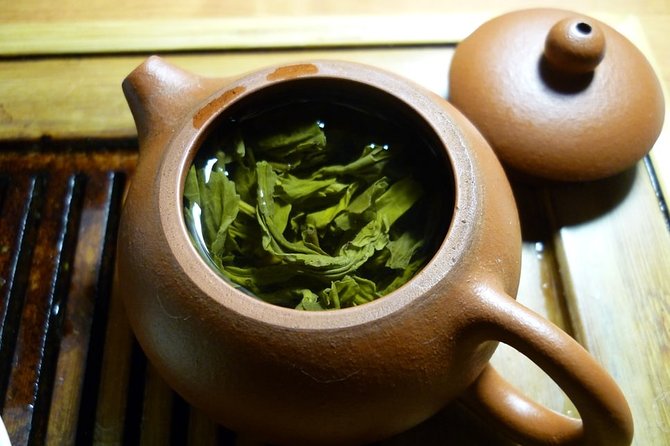
Where can one find authentic Japanese green tea to purchase? Here are some great options for buying green tea online:
- Ippodo Tea: Ippodo Tea is a renowned tea company in Kyoto, Japan, known for its high-quality green teas. They offer a wide range of green tea varieties, including matcha, sencha, and gyokuro.
- Hibiki-an: Hibiki-an is another trusted online retailer that specializes in Japanese green tea. They source their teas directly from local farmers in Japan to ensure authenticity and freshness.
- Yuuki-Cha: Yuuki-Cha is a family-owned business that offers a curated selection of organic green teas from various regions in Japan. They provide detailed information about each tea’s origin and flavor profile.
- Japan Centre: Japan Centre is an online marketplace that offers a wide range of Japanese products, including green tea. They have a selection of different green tea varieties, along with helpful descriptions and brewing instructions.
When purchasing green tea online, it’s important to read product descriptions and customer reviews to ensure you’re getting high-quality tea. Plus, learning how to prepare green tea properly will enhance your tea-drinking experience.
- Things To Do In Tokyo In November
- Things To Do In Tokyo In March 2024: Tokyo’s Best March Events
- Things To Do In April In Tokyo 2024: Tokyo’s Best April Events
- Things To Do In Tokyo In December 2023: Tokyo’s Best December Events
- Tokyo’s Weather And Seasons: A Guide For The Perfect Visit
- Tokyo Midtown Cherry Blossom Season
Frequently Asked Questions
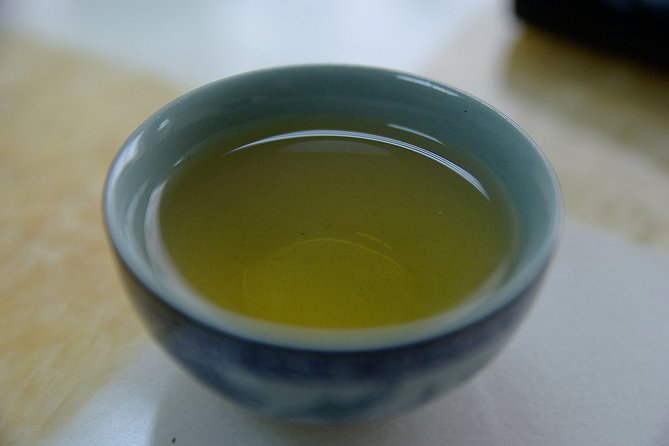
How Long Does the Tokyo Online: Green Teatime in Japan Experience Last?
The Tokyo Online: Green Teatime in Japan experience typically lasts for a specified duration. However, without the context of the specific experience, it is not possible to provide an accurate answer to the question.
Is the Tokyo Online: Green Teatime in Japan Experience Suitable for People With Disabilities?
Yes, the Tokyo Online: Green Teatime in Japan experience is suitable for people with disabilities. Accessibility considerations are taken into account, allowing everyone to enjoy the cultural significance of the tea ceremony.
Is There a Maximum Number of Participants for the Tokyo Online: Green Teatime in Japan Experience?
The maximum number of participants for the Tokyo Online: Green Teatime in Japan experience is 10. The duration of the experience is 2 hours.
Can I Cancel My Booking for the Tokyo Online: Green Teatime in Japan Experience and Get a Full Refund?
Yes, participants can cancel their booking for the Tokyo Online: Green Teatime in Japan experience and receive a full refund if they cancel at least 24 hours before the experience’s start time.
Can I Make Changes to My Booking for the Tokyo Online: Green Teatime in Japan Experience Less Than 24 Hours Before the Start Time?
Yes, changes to bookings for the Tokyo online experience cannot be made less than 24 hours before the start time. Refunds are only available if you cancel at least 24 hours in advance.
The Sum Up
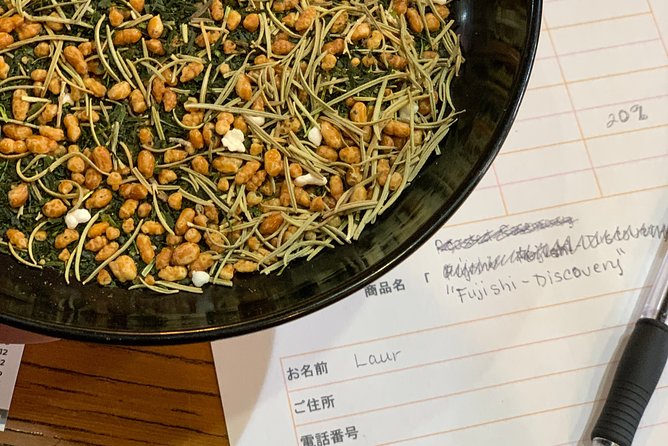
To sum it up, the Tokyo Online: Green Teatime experience offers a unique opportunity to explore the rich culture of Japan through the art of traditional tea brewing.
Participants can learn about the history and health benefits of green tea while gaining insights into the significance of tea in Japanese customs.
This virtual tea party in Tokyo provides an educational and delightful journey into the world of Japanese tea, making it a must-try experience for tea enthusiasts and those curious about Japanese culture.
More Tour Reviews in Tokyo
- Tokyo Airport Transfers: Tokyo City to Tokyo-Narita Airport NRT in Business Car
- Private & Custom TOKYO Day Tour Toyota COMMUTER (Max 13 Pax)
- Private Transfer From Tokyo Port to Tokyo Haneda Int Airport(Hnd)
- Shinjuku Golden-Gai and Kabuki-Cho Bar Hopping With Master Guide
- SHIMOKITAZAWA Local Walking Tour
- Small Group Iaido Class in Tokyo
Not for you? Here's more nearby things to do in Tokyo we have reviewed
- Tokyo Airport Transfers: Tokyo City to Tokyo-Narita Airport NRT in Business Car
- Private & Custom TOKYO Day Tour Toyota COMMUTER (Max 13 Pax)
- Private Transfer From Tokyo Port to Tokyo Haneda Int Airport(Hnd)
- Shinjuku Golden-Gai and Kabuki-Cho Bar Hopping With Master Guide
- Small Group Iaido Class in Tokyo
- Private Casual Photoshoot Tour in Tokyo
- Private Transfer From Tokyo City Hotels to Sendai Cruise Port
- Private Transfer From Tokyo Narita Int Airport(Nrt) to Tokyo Port
- Okonomiyaki Cooking,Japanese Sake Free Flowing Experience
- Mt. Fuji Majestic Tours : Shinjuku to Arakurayama and Beyond
- Private Transfer From Tokyo Cruise Port to Tokyo Hotels
- Private Transfer From Nagasaki Hotels to Nagasaki Cruise Port



